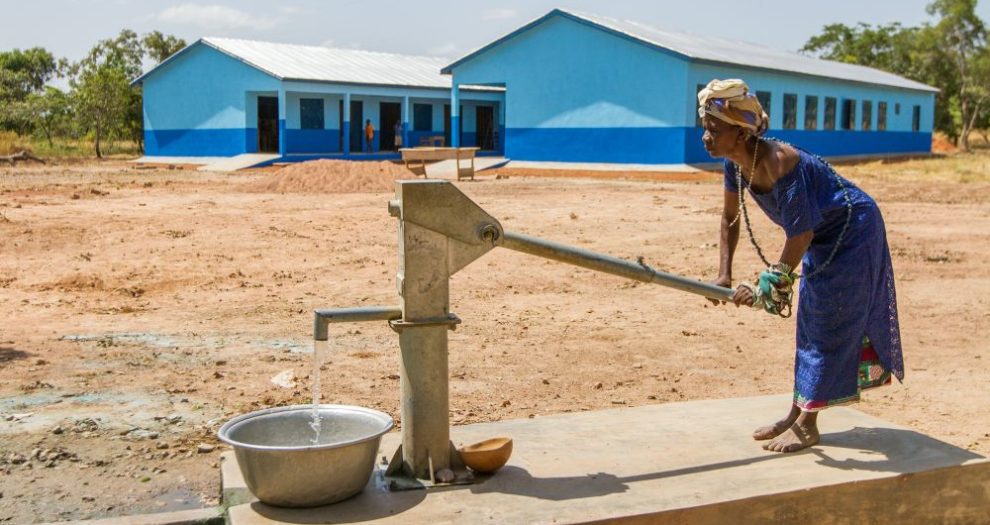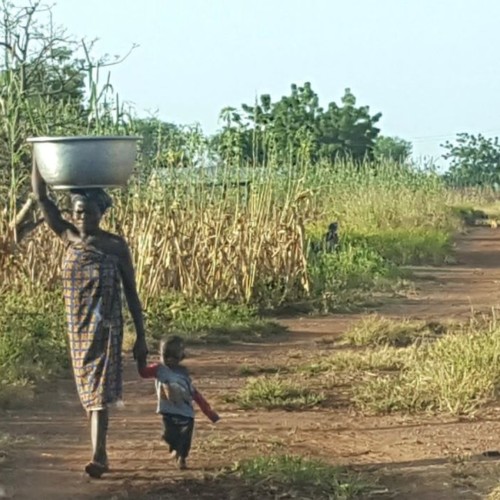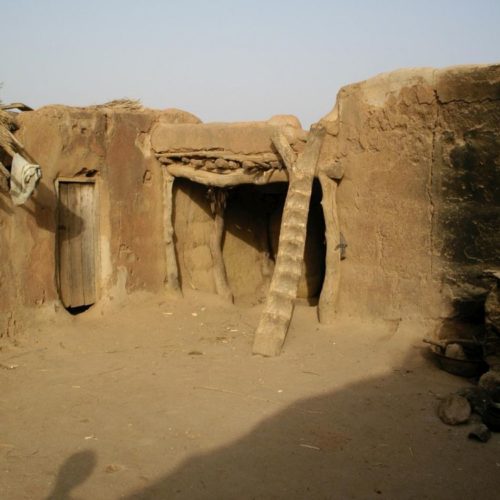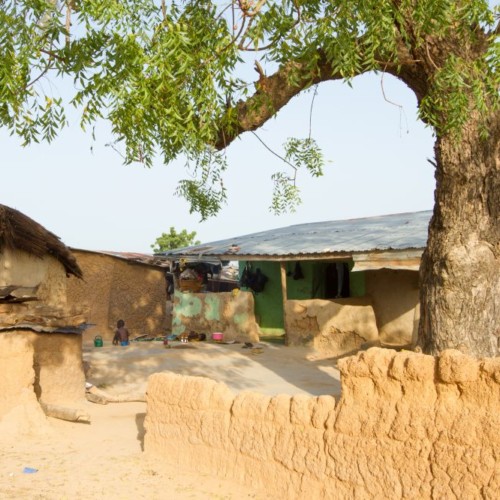Dear Supporters
We would like to introduce you to Comfort Bun-ire.
Comfort is a housewife and subsistence farmer. She lives and works in the remote village of Lyssah, in northwest Ghana – not far from the border with Burkina Faso. She is 34 years-old and lives with her husband, two sons, three daughters and her mother-in-law. Their lives rise and fall with variations in the crops and the weather. By every measure she is poor. Comfort knows scarcity, which can make ‘enough’ seem like plenty.
Home is a small collection of ochre huts arranged around a central courtyard. The air is heavy with heat, the din of cicadas, and the odour of smouldering charcoal. A gnarled acacia tree provides some shade from the midday sun: a scrawny dog scratches and yawns, chickens scrape in the dirt, a couple of piglets doze in the corner – tails flicking flies. A large pot simmers over a wood fire – charcoal black stains on a nearby wall evidence of this daily ritual. Simple steps carved into a log leaning against a wall gains access to the roof, where maize dries in the sun. Scattered around the compound are signs of Comfort’s tough subsistence lifestyle – fishing nets hanging from the tree, a wooden hoe, a rake.
Beneath the compound, a graveyard – the burial place of the ancestors. Their presence, marked by a mud memorial, a daily reminder of the brevity of life.
Her day begins at first light. She is busy all day with housework, pounding millet, collecting firewood, and labouring in the field. Like everyone else in the village, Comfort does not have access to tap water. She is the main person responsible for fetching water for the family. The round trip to the borehole takes about an hour, morning and evening. When she is too busy tending the crops or making TZ (Tuo Zaafi – the staple food , a sticky porridge made from millet flour), she has to send her children to collect water.
Despite owning a small parcel of land her family is not making any income from their fields. Occasionally surplus crops can be sold in the weekly market in Lawra – but it can often be a battle for survival. During this year’s rainy season, exceptionally heavy and prolonged rains flooded the area, destroying Comfort’s fledgling crops and making the food supply for next year uncertain. This has been exacerbated by the rising cost of food in the area, a result of supply issues caused by the pandemic. The current plan is for her husband and oldest child to migrate south to Kumasi in search of work until next harvest, hoping that the weather conditions will be more favourable next year. This is the harsh reality of subsistence farming – what it means to be trapped in the arduous cycle of poverty with little hope for the future.
Although Christmas means little to Comfort, this year she has received a wonderful gift! A new borehole has been drilled in her village and, close by, she watches the walls of a school building starting to rise. Comfort never had any schooling herself but, at the local market, she has heard all about the blue schools. She is overjoyed that a Christian school is being built in her village. Quite apart from the improved prospects that an education will give to her children, Comfort’s overwhelming emotion is relief. Easy access to clean drinking water and the daily provision of food for her children removes an enormous physical and emotional pressure. Real hope has arrived for Comfort and her five children. She is not able to thank you personally. But we count it our greatest privilege to do so on her behalf. There is a spiritual dimension to the work of Savannah, and our prayer is that, in due time, Comfort, her family, and many in the village will come to know another gift: what Paul calls the ‘unspeakable gift’ of the Lord Jesus.
Comfort’s children will join almost 3,000 children now attending our Christian schools in this region. During this year, pupils started attending the newest school in the village of Danko-Buree – the ninth village in which we are working (Comfort’s village of Lyssah is the tenth). None of this could be contemplated without our kind and generous supporters.
We are thankful for all the work that has happened this year, but as the responsibilities and ongoing costs increase, it is without doubt daunting too. We are ever more dependent on your prayers and your generosity.
We join with all our friends in Ghana in wishing you a very happy Christmas and God’s blessing during 2022.
On behalf of the trustees

Paul Ramsbottom




